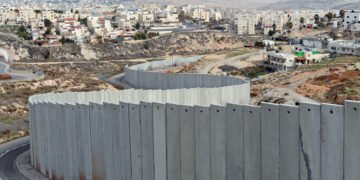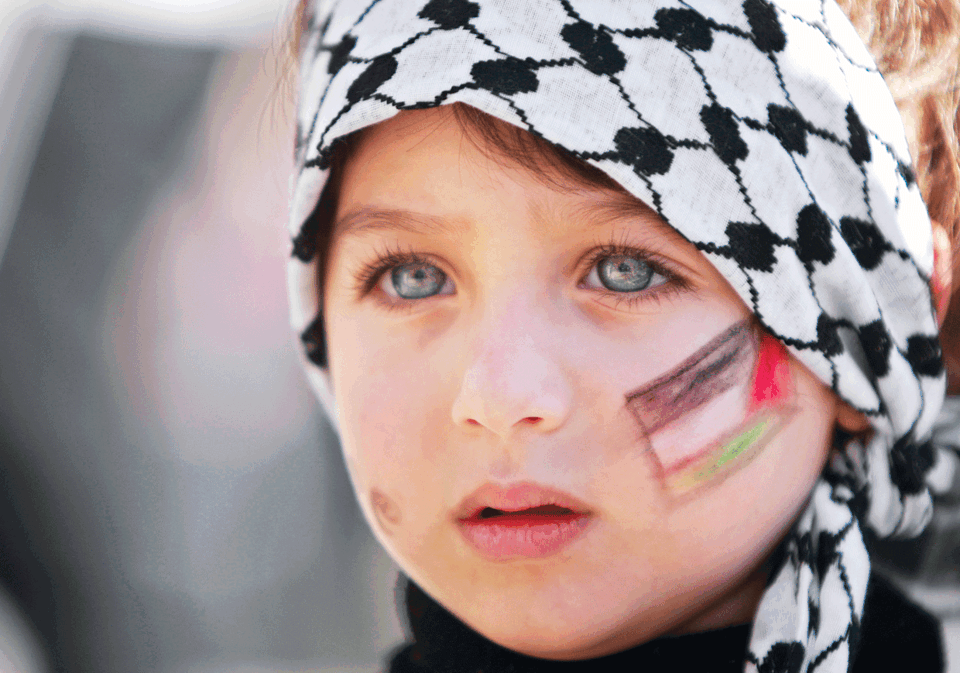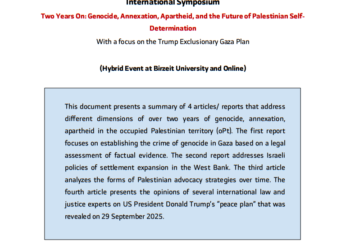Will it work for Palestine ? How did the International Criminal Tribunal succeed in prosecuting war criminals in former Yugoslavia and Rwanda ?
Prepared by: Ghadir AbuMiddain*
Background
On January 1, 2015, the State of Palestine signed the declaration of accession to the Rome Statute of the International Criminal Court (ICC). Following that, the ICC referred the situation in Palestine to the Public Prosecutor in order to investigate crimes believed to have been committed in Palestine, including war crimes. The start date was set from June 13, 2014; i.e., the start of the Israeli military operation in the Gaza Strip.
Subsequently, the Court’s Public Prosecutor Office opened a preliminary investigation to examine whether ICC standards are met in order for the Court to exercise its jurisdiction over crimes believed to have been committed in Palestine. On December 20, 2019, that is, after waiting for nearly 5 years, the public prosecutor announced to the Court the end of the preliminary investigation, concluding that the required criteria are met. The Prosecutor then asked the Court’s judges to define the geographical area of Palestine, in which the court can exercise its jurisdiction over crimes.
Internationally, 7 countries, including Germany, made interventions before the Pre-Trial Chamber to prevent the investigation from going ahead. Then US President Donald Trump issued an executive order imposing sanctions on the Prosecutor of the Court and other employees, for their supportive position to open an investigation on Palestine.
On February 5, 2021 the ICC Pre-Trial Chamber I announced its long awaited decision regarding the court’s territorial jurisdiction on the alleged crimes committed on the occupied Palestinian territories; the West Bank including Jerusalem, and the Gaza Strip. On March 3, 2021, ICC Prosecutor, Fatou Bensouda, has confirmed the initiation by its office of an investigation respecting the Situation in Palestine, which is expected to have substantial repercussions considering the high sensitivity of the issue.
The State of Palestine welcomed the decision of the Prosecutor, and considered it a long-awaited step “serves Palestine’s vigorous effort to achieve justice and accountability as indispensable bases for peace”. On the other hand, Israeli Prime Minister Benjamin Netanyahu remarked this decision as a “absurd”. “It’s undiluted antisemitism and the height of hypocrisy”, he added.
Many wonder, can there really be hope for prosecuting crimes in Palestine through the International Criminal Court?
Many people might question the viability of the investigation, doubting the possibility of prosecuting crimes in Palestine through the ICC? Is it really possible to witness the prosecution of those responsible for killing civilians, building illegal settlements on occupied territory, imposing blockades, carrying out arbitrary arrests, holding unfair trials, and the many other crimes that have been occurring in Palestine? Can we consider this decision a good step towards achieving justice? Will the International Criminal Court succeed in holding those responsible for these crimes to account?
To answer this question, it would be good to recall other experiences. Has international prosecution ever succeeded in trying war criminals? Were perpetrators brought to justice for their heinous acts? And were victims brought redress?
Stories of successful international prosecution of war criminals:
1. International Criminal Tribunal for the Former Yugoslavia (ICTY): This Court was established in 1993 to hold accountable perpetrators of war crimes during the 1990s in the Balkans. The Court is the first to have jurisdiction to try officials of serious war crimes committed against their citizens within a specific territory.
The public prosecution of this Court introduced an indictment against 160 figures involved in serious international crimes in the former Yugoslavia region. The Court sentenced 90 people to penalties between prison for life, prison from 5 years to 46 years. Some 59 people were handed down these two sentences, while 9 others died in prison or after serving their sentence. There are 3 others still being tried. Perhaps the most famous two figures in this trial are:
- (Radovan Karadžić), against whom accusations were brought because of being responsible for committing massacres against civilians. The charges brought against him were crimes against humanity, genocide, and crimes that violate the international norms of war. An international arrest warrant was issued against him in the 1990s, however, he was on the run until his arrest in 2008 in Belgrade. In March 2019, he was sentenced to life in prison, after a previous sentence of 40 years in prison.

- (Slobodan Milošević), who is considered the first head of state to be tried before an international criminal court for crimes committed during his presidency. He died 4 months before the verdict was issued against him, and questions were raised around the cause of his death. Several reports stated that he committed suicide by drinking poison, but the court spokesperson explained that he died of natural causes due to his poor health conditions.
2. The International Criminal Tribunal for Rwanda (ICTR): This court was established through Resolution No. (995) of the United Nations Security Council to hold accountable those responsible for genocide committed in Rwanda during the Rwandan civil war. The importance of the Rwanda Tribunal stems from the way it deals with the crime of genocide, as it has established numerous case laws relating to the prosecution of genocide perpetrators.
Screenshots of the trial of those accused of genocide in Rwanda – is Palestine going to witness the same?
The Court convicted 93 defendants, including the prime minister, the minister of defense, and the commander of the army, and imposed final penalties on 61 defendants. In 2015, the Court issued its final ruling against the Minister of Development and Women, Pauline Nyiramasuhuko, and five other defendants for their responsibility for committing genocide in Rwanda.
What is the role of the International Criminal Court?
The International Criminal Court is an international judicial body that holds accountable “individuals” responsible for committing serious international crimes such as genocide, war crimes, crimes against humanity, and the crime of aggression. The Court was formed on the basis of the Rome Statute in 1998, and officially began its work in 2002.
The ICC has jurisdiction over crimes committed on the territories of member states in the Rome Statute, or crimes committed by a person who holds the nationality of these countries, and the number of these countries so far is 124 countries, among them are Palestine (as well as France, Britain, Canada, Tunisia, Jordan, and a large number of African and Latin American countries. On the other hand, the United States, Israel, Russia, and China are not parties to the court).
The role of the International Criminal Court is a continuation of the work of the previous international criminal courts that were formed during the 1990s to hold accountable perpetrators of international crimes in the former Yugoslavia and Rwanda. But what distinguishes the International Criminal Court is that it is the first permanent international judicial system to be established in order to hold perpetrators of serious international crimes accountable, unlike previous international criminal courts that were established in order to exercise their jurisdiction temporarily and exclusively in a specific region or specific crimes. It is also worth noting that the Criminal Court is an independent international body, not affiliated with the United Nations.
The International Criminal Court and Palestine, challenges that are not hidden and prospects for achieving justice for the victims
Observers of the International Criminal Courts are not strangers to the obstacles and challenges they have faced and are facing. The International Criminal Court relies in its work on the cooperation of the states parties to the Rome Statute, which is exemplified by their response to the arrest warrants issued by the court against the perpetrators of crimes and handing them over to the court, as there is no “international police” that can forcefully enter countries and investigate or arrest those wanted. In addition, the failure of the permanent members of the United Nations Security Council to sign the Rome Statute, as mentioned above, undoubtedly affects the enforcement power of the court’s decisions, as these countries have a great regional and international influence. Additionally, international prosecution usually takes many years to reach verdicts, as we have shown in previous criminal courts. But the important thing is that the officials and perpetrators of crimes were eventually held accountable.
Undoubtedly, the context of the Palestine case in the Court faces greater challenges than any other case. This is mainly due to Palestine’s status as a non-member state, and the fact that some countries do not recognize Palestine as a state, especially the United States and most European countries. This, in addition to unprecedented American attempts to dissuade the court from proceeding with the investigation by imposing sanctions on some of the court’s employees.
“Undoubtedly, the context of the Palestine case in the court faces greater challenges than perhaps any other case”
These reasons could also be a source of strength for the ICC, as it is not affiliated with the United Nations, and its work as an independent judicial institution makes it relatively far from political influences. It also helps the Court shelter itself from superpower vetoes. Such vetoes have historically proven to cause continued deterioration of civilian lives and living conditions, with Syria, Yemen and Libya being prime examples.
Therefore, we are beginning to see important steps in this context, such as the Prosecutor’s announcement that the Public Prosecution Office has found sufficient and reasonable grounds to request permission to open an investigation into the crimes alleged to have been committed on the territory of the State of Palestine. This is despite the very immense pressure that the court has been subjected to, which prompted the public prosecutor to come out with a statement confirming that its work on the Palestine issue is based on criteria of impartiality and objectivity.
And as the Pre-Trial Chamber decides in its decision on Febreuay 5th 2021 to consider the court competent to investigate the West Bank and Gaza Strip, including East Jerusalem, in the longer term, this means that all war crimes committed over the past years (since the mid of 2014) will be investigated. When the court issues arrest warrants for war criminals, there will be an obligation on 123 countries, which are the states parties to the court, to hand over those wanted for it, regardless of their leadership status. This will certainly represent a major restriction and a political and judicial earthquake in the interest of victims. It will also have a huge impact on the movement of the leaders who ordered the commission of these crimes, including for building illegal settlements and for widespread and indiscriminate killing of civilians, as previously mentioned.

Here, Israel seems to have actually begun preparing a list of the names of its officials who would be at risk of arrest if the court completes the investigation. In fact, Former Israeli Prime Minister, Ehud Olmert, canceled his visit to Switzerland, fearing he would be arrested on the grounds of being accused of committing war crimes.
Conclusion
The International Criminal Court may take years to hold perpetrators of serious international crimes accountable. However, our awareness of the nature of the court’s work as an international judicial body and the nature of the procedures for cases before the court helps us understand the importance of the public prosecutor’s decision to proceed with the investigation. Our knowledge of the successes of previous international courts makes us believe in the success of the International Criminal Court in its mission of holding perpetrators of crimes accountable in Palestine. Even if officials evade arrest warrants and hide, the fact that arrest warrants have been issued against them restricting their travel to the countries that are parties to the Rome Statute, which includes most European, African and Latin American countries, remains unprecedented. In conclusion, we have to ask ourselves, if the trial currently underway before the ICC was not this sensitive and serious, then why did it receive all this opposition, backlash and punitive measures?!

* Ghadir AbuMiddain: is a legal researcher at Law for Palestine. She was ranked among the top three participants in the regional competition for international humanitarian law in Gaza in 2017. Abu Madian holds an MA in Human Rights and Democracy from Saint Joseph University in Beirut, and is currently doing another MA in Political Science and International Relations from Doha Institute for Graduate Studies.







